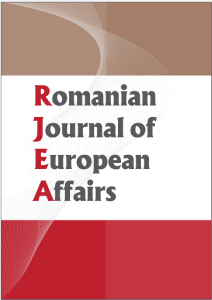Politica agricolă românească şi perspectiva aderării la Uniunea Europeană
Dragos Negrescu
Abstract:
The paper attempts to systematically explore, first, the rationales for supporting the agricultural sector in Romania and, second, the extent to which the preparation for accession calls for the dispensation of such aids. The author concludes that, following a brief period of rationalization, both the scope and, even more so, the modalities of supporting the agricultural sector are prone to lead to perverse effects, while not facilitating in any meaningful way the country’s eventual accession to the European Union. Refuting with hard facts the often repeated assertion that domestic farmers are deprived of protection against competing imports, the paper highlights some very questionable features of Romania’s trade policy in the agricultural area and calls for a different approach, centered on reducing barriers facing imports destined to the local market in exchange for improved access of Romanian exports to foreign markets.
Keywords: EU accession
Some Reflections on Possible Scenarios for EU Enlargement
Andras Inotai
Abstract:
In the last weeks, several declarations preferring the scenario of the large-group (big-bang) enlargement of the European Union (EU) have been made both by member-countries and the Commission. Although the latest Commission reports, including the enlargement strategy paper, mention the previously unquestionable performance criteria of membership, according to which only adequately prepared countries fulfilling the fundamental accession criteria can join the EU, they emphasize that in the near future not less than ten countries may be able to reach this goal.
This position is clearly supported by the fact that, with the exception of Bulgaria and Romania, all candidate countries can close the accession negotiations in the foreseeable future. Moreover, despite the general consternation among present and future members of the EU, the French foreign minister announced the possibility of a twelve-country enlargement. It cannot be excluded that the political decision on the modality of enlargement has already been taken. Thus, supposing this case, it is a justified question whether it still has any sense to consider any potential scenario of enlargement. I am convinced that it is justified for three reasons. First, at present, there is not yet a clear EU position concerning the enlargement. As long as this position is open, all kinds of discussion are not only justified but also welcome. Second, the experts dealing with this topic can hardly abstain themselves from participating in the debate. Professionally and morally, they are (should be) committed to call attention to the potential dangers that, in my view, could seriously damage not only the future position of the candidate countries, but also the future of the EU and of the whole continent. Third, some developments seem to indicate that the discussion about the pattern of enlargement has just reached a turning point. This is the last moment, in which the evolution of such processes can be prevented, since its consequences might condemn Europe to damage limitation, instead of strengthening Europe’s stability and global competitiveness. The basic idea of this paper was generated by knowing and feeling that perhaps, it is not yet too late.
Keywords: enlargement, European Commission
Is Catching Up Possible in Europe?
Daniel Daianu
Abstract:
In the current debate on the European Union enlargement there is an apparent mythical belief that, if the set of preconditions set by Brussels are fulfilled, rapid and sustained economic growth would ensue, which would allow the newly admitted countries to catch up economically with the better off European countries. An encapsulation of this thesis is the expression: A well functioning competitive market economy, which would be able to withstand competitive pressures inside the EU. Those who accept this thesis are ready to point out to the experiences of Ireland and Spain in Europe, in particular. But the evidence in this regard is not so conclusive. In addition, there is glaring evidence worldwide as to the rarity of catching up. Thence, taking for granted the above hypothesis can be misleading unless the possible sources of growth are examined in a thorough and open-minded way. This paper aims at raising awareness on an issue, which is more complicated to deal with than is conventionally assumed.
Keywords: enlargement, Ireland, Spain
Convergenţa nominală şi convergenţa reală: România în contextul regional
Valentin Lazea
Abstract:
As the accession date for the first wave of candidate countries is approaching, there are an increasing number of voices considering the Maastricht Criteria (nominal convergence) not enough as a prerequisite for integration. Obviously, after the assimilation of the first wave of candidates, which admittedly will not occur without economic difficulties for the EU, the hypothesis that the EU will put emphasis on the criteria of compatible economic structures (the real convergence) appears as a plausible scenario for the second wave of candidates including Romania. The present article provides a comparative analysis between Romania and other Central and Eastern European candidates regarding their competitiveness in terms of real convergence. In this regard, it considers that in the short term a strategic thinking for improving Romania’s real convergence has to be targeted on reducing inflation and increasing the GDP per capita. The article concludes that both objectives can be successfully accomplished, by a continuous policy of real appreciation of the national currency, as the examples of other candidate countries (e.g. Poland, Hungary) prove.
Keywords: Central and Eastern Europe, convergence, inflation, Romania
Preparation of National Constitutions of Candidate Countries for Accession
Alfred E. Kellermann
Abstract:
In most candidate countries, enlargement will contribute most likely to the constitutional modernization of the country. The EU accession will be a fundamental landmark in this respect. This will especially concern the implications of their membership for the national constitutional provisions concerning, among others, the principle of the transfer of the exercise of certain state powers to the EU deriving from national state sovereignty, supremacy, primacy, priority, direct applicability and direct effect of community law, specific provisions of the EU and EC Treaty regarding European citizenship, voting rights etc., as well as specific provisions in national constitutions which contradict the acquis communautaire, such as acquisition of land and realestate by non-residents, extradition of own nationals etc. This paper outlines some of the major problems of a new constitutional design in accession countries.
Keywords: accession, acquis communautaire, candidate countries, community law, constitution
Suveranitatea şi aprofundarea integrării în Uniunea Europeană
Ioan M. Anghel
Abstract:
Romania’s future EU membership requires a thorough reconsideration of the balance of power between the national state and the EU. The author argues that it is difficult, at present, to estimate what this balance will be like by the time Romania joins the EU. Therefore, the article looks at the current state of facts in the EU. Similarly to other international organisations, in the EU there is a transfer of suzerainty from the Member States to the common institutions. The difference consists however, in a higher degree of suzerainty loss, due to the fact that the EU has created supranational bodies, which can make binding decisions on behalf of the Member States. In the case of other international organisations, decisions are made only through the consensus of all participating states. This transfer of suzerainty has increased over time, as the Union evolved from a purely economic organisation to a political – and eventually a military – one. For Romania, one of the first consequences will be the modification of the Constitution and of other legislation.
Keywords: EU membership, integration, sovereignty






